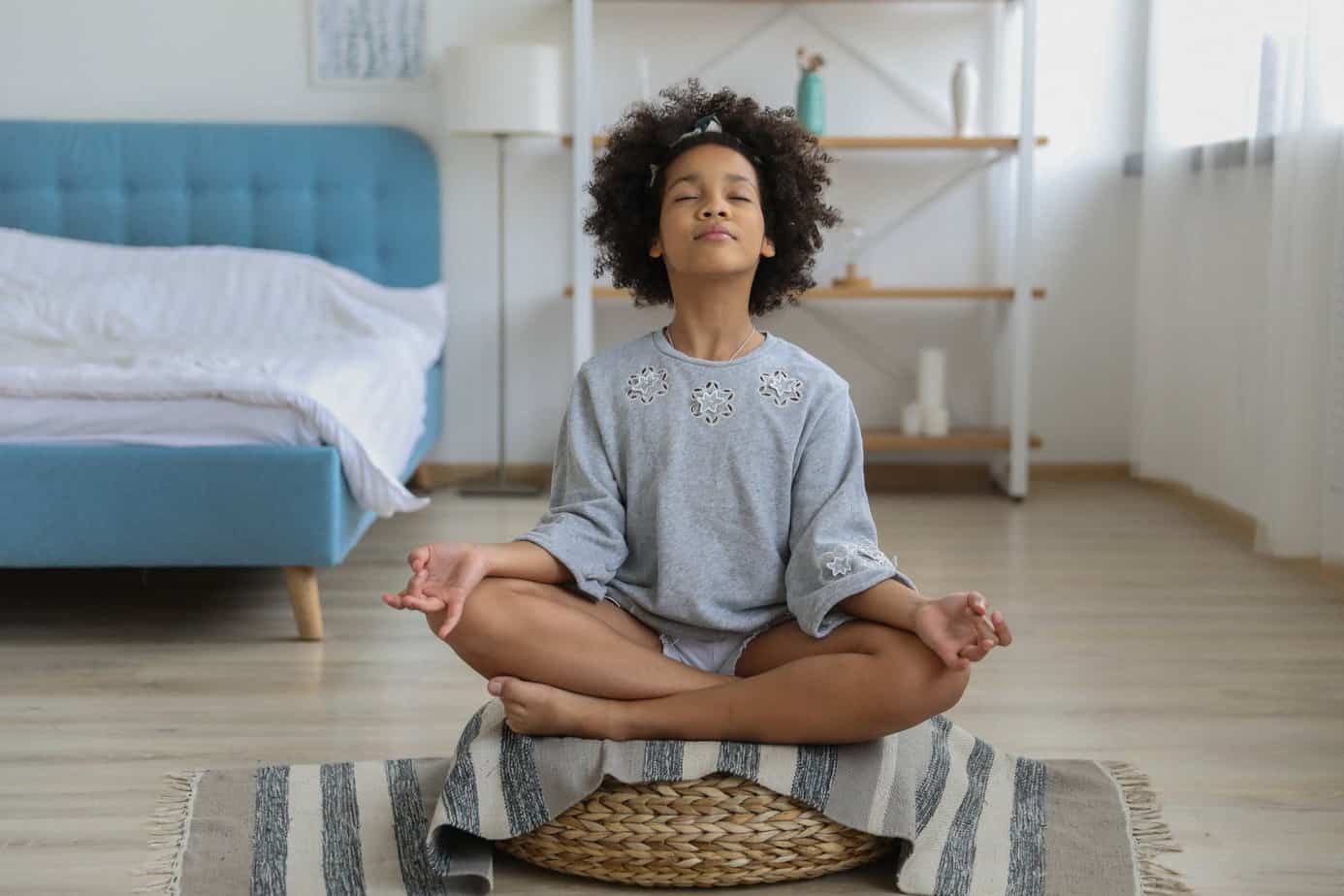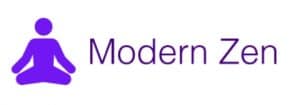What is the Om symbol? How do you pronounce it? What is Om Symbol Meditation, and why should I be using it in my meditation practices? If any (or all!) of these questions have come to you before, well then the next few minutes of reading are for you. Grab a cool drink, relax and read on…

- What is the om symbol and what does it mean?
- How to use the symbol in your meditation practices?
- Benefits of using the Om symbol in your practice?
- The benefits of practicing ANY meditations?
- Ways you can get started with a regular meditation practice
What is the om symbol and what does it mean?
The Om symbol is a sacred Hindu and Buddhist sign, representing the eternal cycle of life. It represents many things, including the universe and divine energy. The sound that it produces when sung or chanted has been found to be beneficial for meditation practices.
Oṃ has a long history as a sacred sound, representing the entirety of creation and used by many religions since ancient times. It also has healing qualities for physical ailments. Properly pronounced, this powerful mantra will help increase your concentration while meditating and provide you with an enhanced sense of clarity that can bring about feelings of peace and serenity within yourself. In order to make sure that you are pronouncing the Om mantra correctly, here is how: start by making a small “o” shape mouth then create an “m”. That ought to get you started.
“I have been meditating for a while now and I find that using the Om symbol as part of my meditation practices is very beneficial. It has helped me to stay focused and it has also helped me to be more mindful.”
How to use the symbol in your meditation practices?
There are many symbols to use in meditation practices. One of the most common is the Om symbol, which is a sacred sound and also a representation of Brahman.
Meditation is a practice that many people are turning to in order to manage stress, anxiety and other mental health issues. One way that you can include this mindfulness practice in your life is by using the Om symbol as an object of meditation. The most common way to use the om symbol for meditation is with a mantra. Mantras are powerful words or phrases chanted aloud or silently during meditation practices which help practitioners focus on their breathing and allow thoughts to pass freely without judgement. It’s important not just what you’re saying but how you say it: Use tone and volume when chanting these mantras so that they resonate through your body and mind, sending vibrations into your cells. It’s also important to chant them slowly at first… REALLY slow. Think about how slow you could chant it… then go slower.
To use this symbol in your own meditative practice you would simply sit comfortably cross-legged on the ground or floor and then place your hands palm up on top of each other so they form an “O” shape below your face. You should put one hand over the other at about chest height so that you don’t have too much pressure on any one finger. Then close your eyes slightly while tilting your head back just enough for it to feel comfortable against you neck as well as straighten out both
Benefits of using the Om symbol in your Meditation practice?
In the 1970s, a popular belief was that the Om symbol helps meditators reach a higher level of consciousness. Today, while many people still believe this to be true, there are some who disagree with this theory and say that it is simply a “ritual object” for meditation.
One of the immediate benefits of using a symbol to assist focus during meditation is that it can help you feel more grounded and relaxed. The Om symbol, which is the most widely used symbol in meditative practices, and it can also have a similar effect on your mood. This symbol reduces stress and anxiety levels as well as increases overall feelings of happiness.

The benefits of practicing ANY meditations
When we are stressed, our minds and bodies can go into a heightened state of alert. It is in this state that the body releases hormones like cortisol and adrenaline. These hormones calm down when we practice meditation regularly. There are many other benefits to practicing meditation. It teaches us to be more present, improves sleep quality, lowers blood pressure, reduces pain and anxiety.
Practicing meditation is a great way to improve your physical, mental and emotional health. Meditation has been shown to reduce stress levels, lower blood pressure, and even increase the length of telomeres in our DNA. If you want to increase your happiness or reduce your stress levels, read on for some tips on how to start meditating today!
Ways you can get started with a regular meditation practice
Do you want to start a meditation practice but don’t know where to begin? Meditation is an amazing stress reliever, and has been shown in numerous studies to have many health benefits. Here are some ways that you can usewith your own regular practice: Find a comfortable space for yourself. You might find it helpful to settle into a chair or on the floor; experiment with different positions until you find one that feels right for you. You’ll also want to set aside at least 10 minutes of uninterrupted time for your meditation session each day, which may mean waking up earlier than usual or taking time out during work hours. It’s best not to meditate after eating heavy foods because digestion can interfere with concentration and emotions such as anger are more
Bonus Tip:
If you’re looking to add this symbol into your daily spiritual practices – it’s a good idea to hang some Om Symbols around your space to keep it present in your mind. Just as in our guide about the Enso Circle, here are some tips for how to draw the Om Symbol:
- Draw an oval shape with two lines going across it on either side (similar to a lowercase “h”)
- Make three dots in each end point of the oval as well as one dot in the center
- Connect all five dots with curved lines
- Fill in any empty spaces left over with straight lines
- Curl up all four corners of the shape
- Create a loop
Recent Posts
The Role of Senior Living Placement Services in Enhancing Quality of Life for Seniors
How can seniors find the best place to live as they get older? Choosing the right place is important for their health and happiness - senior living placement services help by finding the perfect...
Understanding the Concept of a Gift from God: A Spiritual Exploration
When we think about gifts, we often picture tangible items wrapped nicely in colorful paper. But a gift from God is different. It isn't something you can hold or touch. Instead, it's something...
